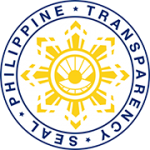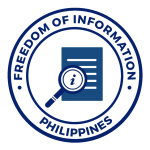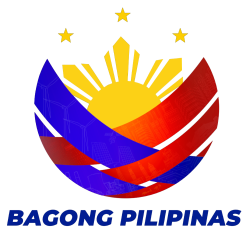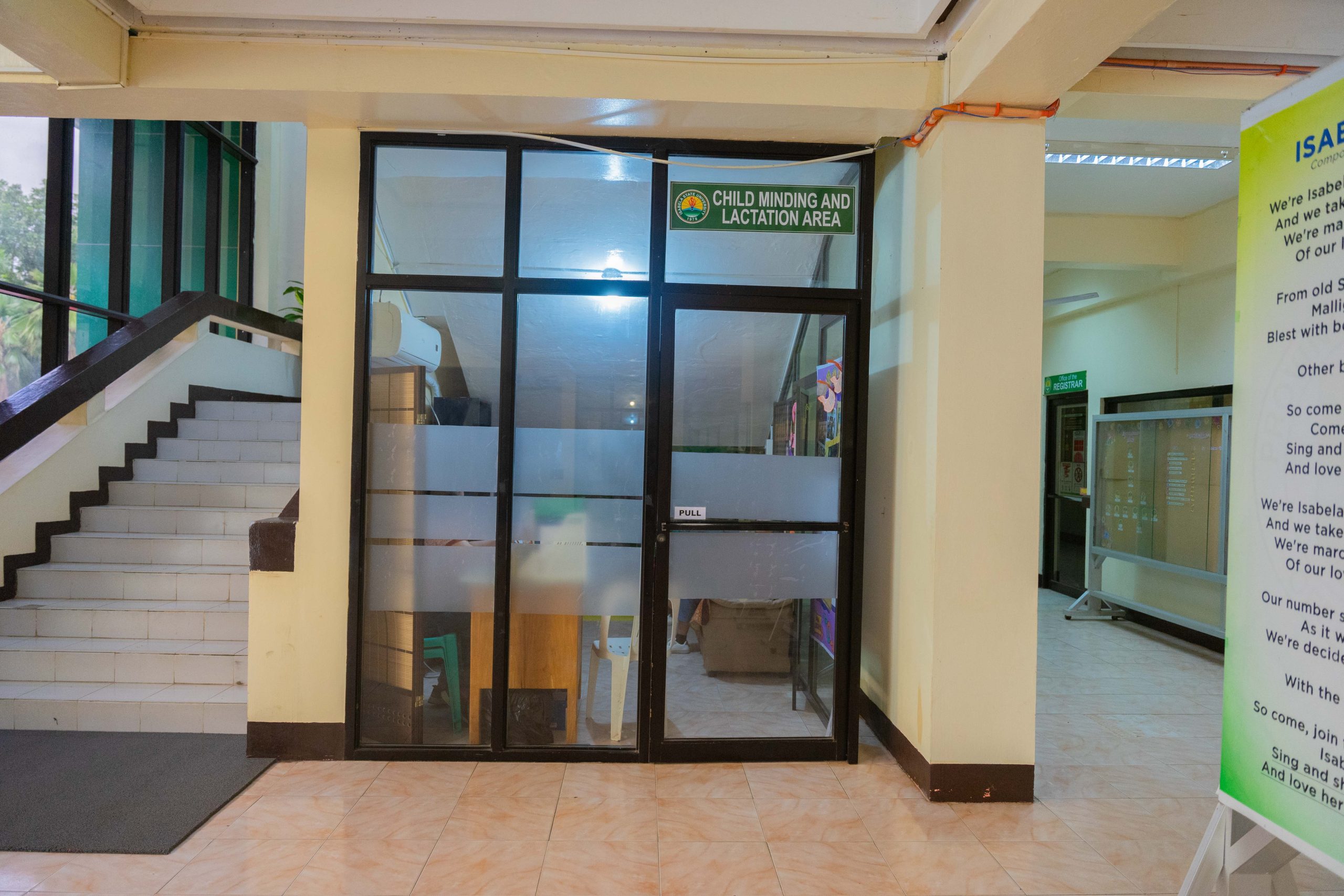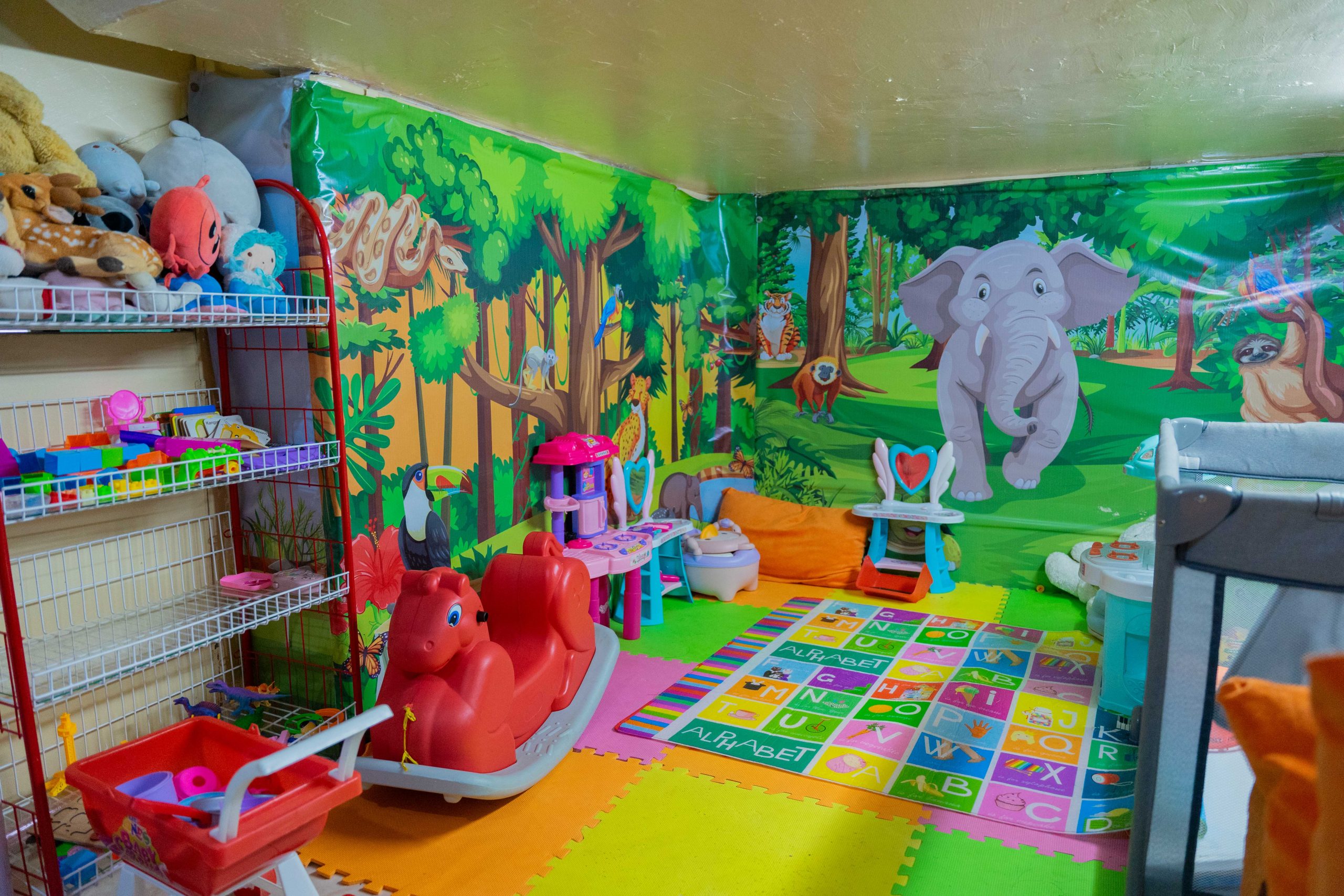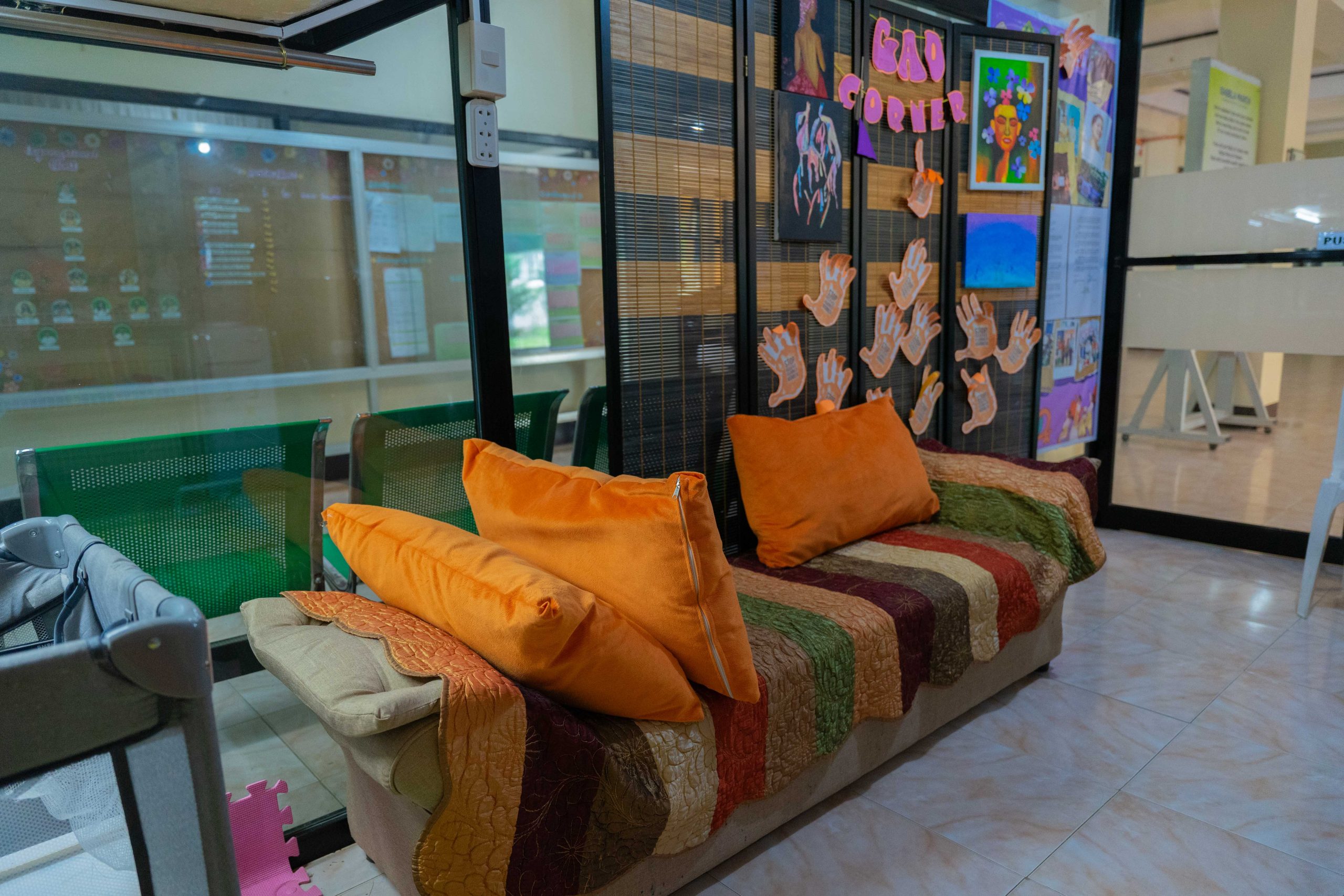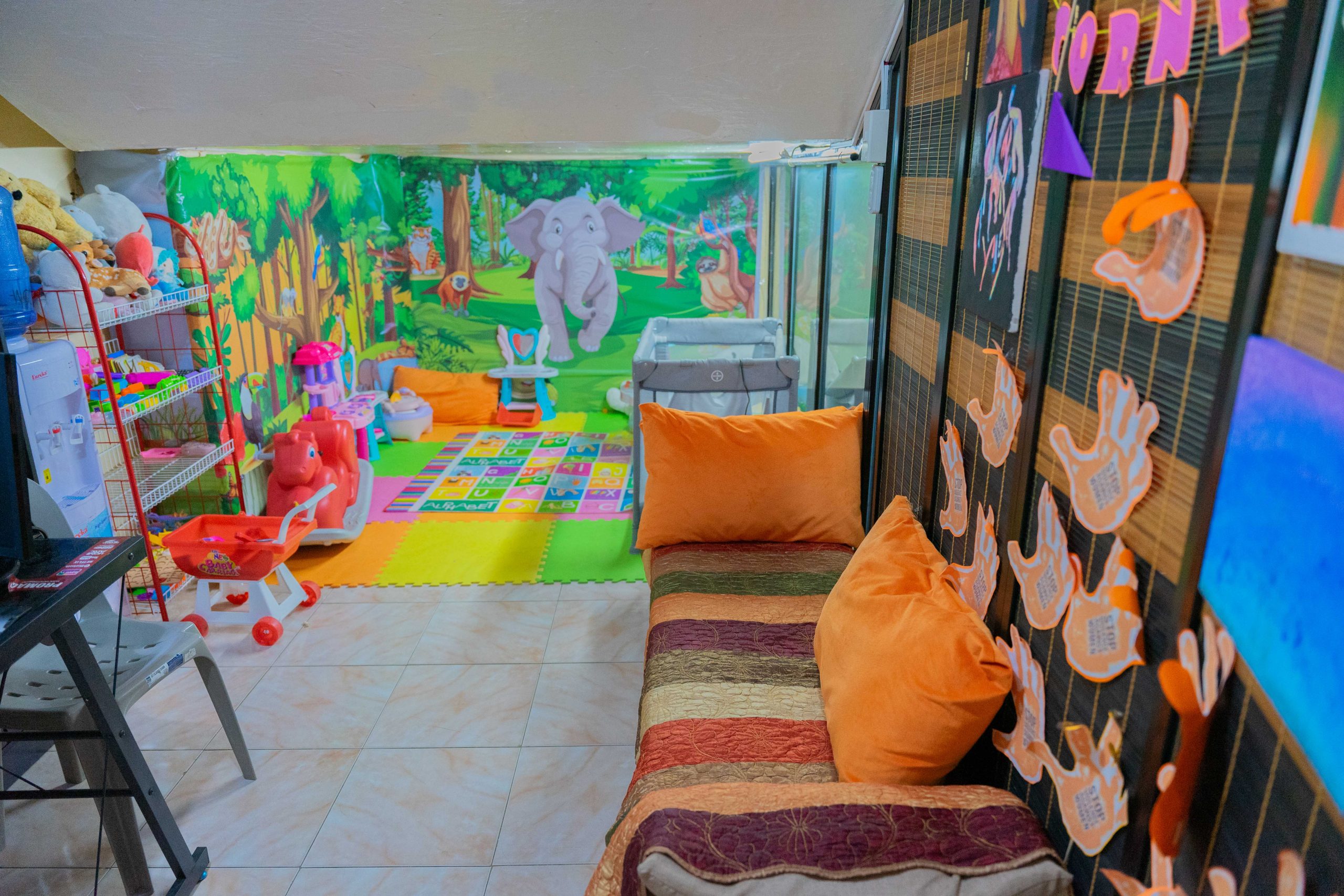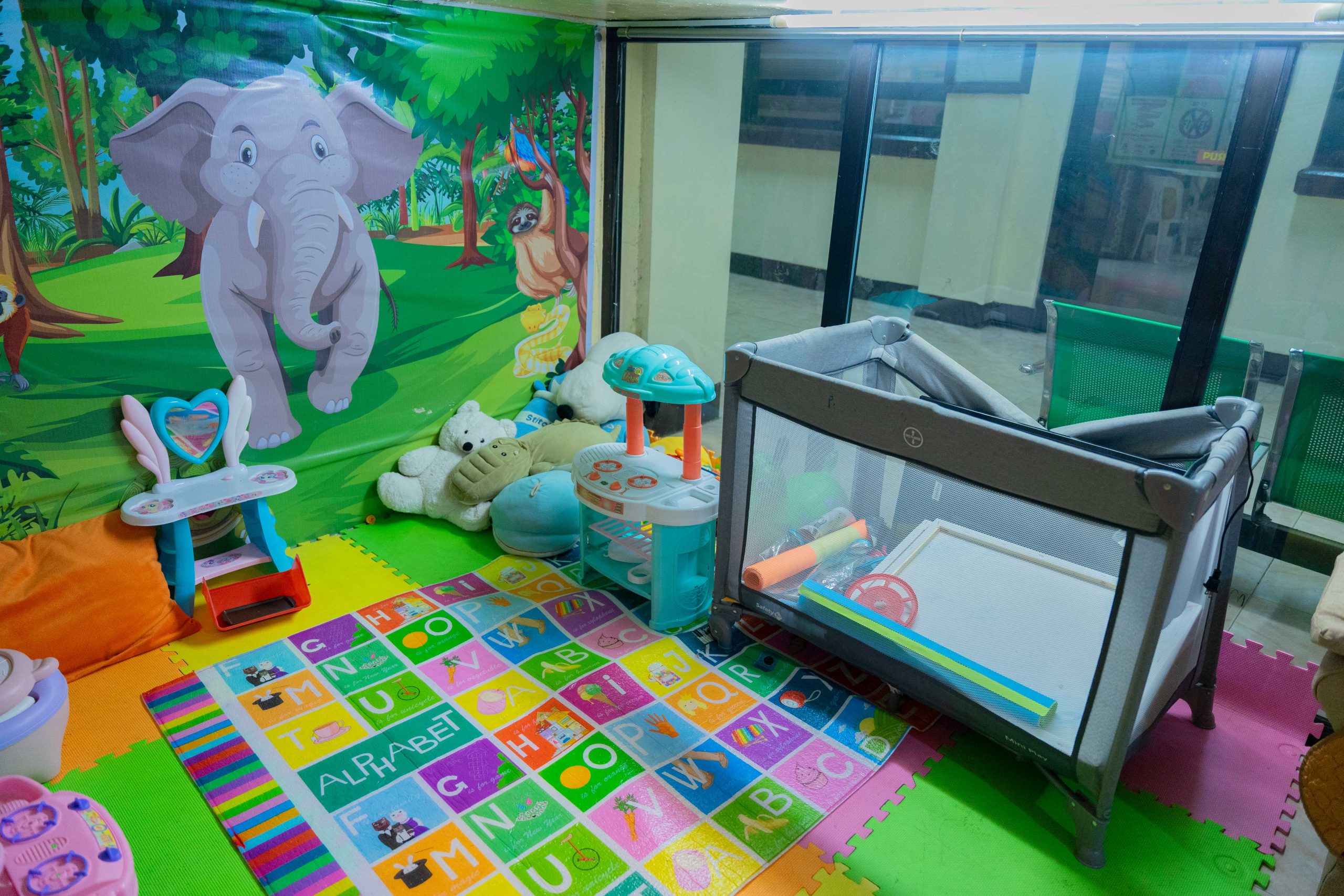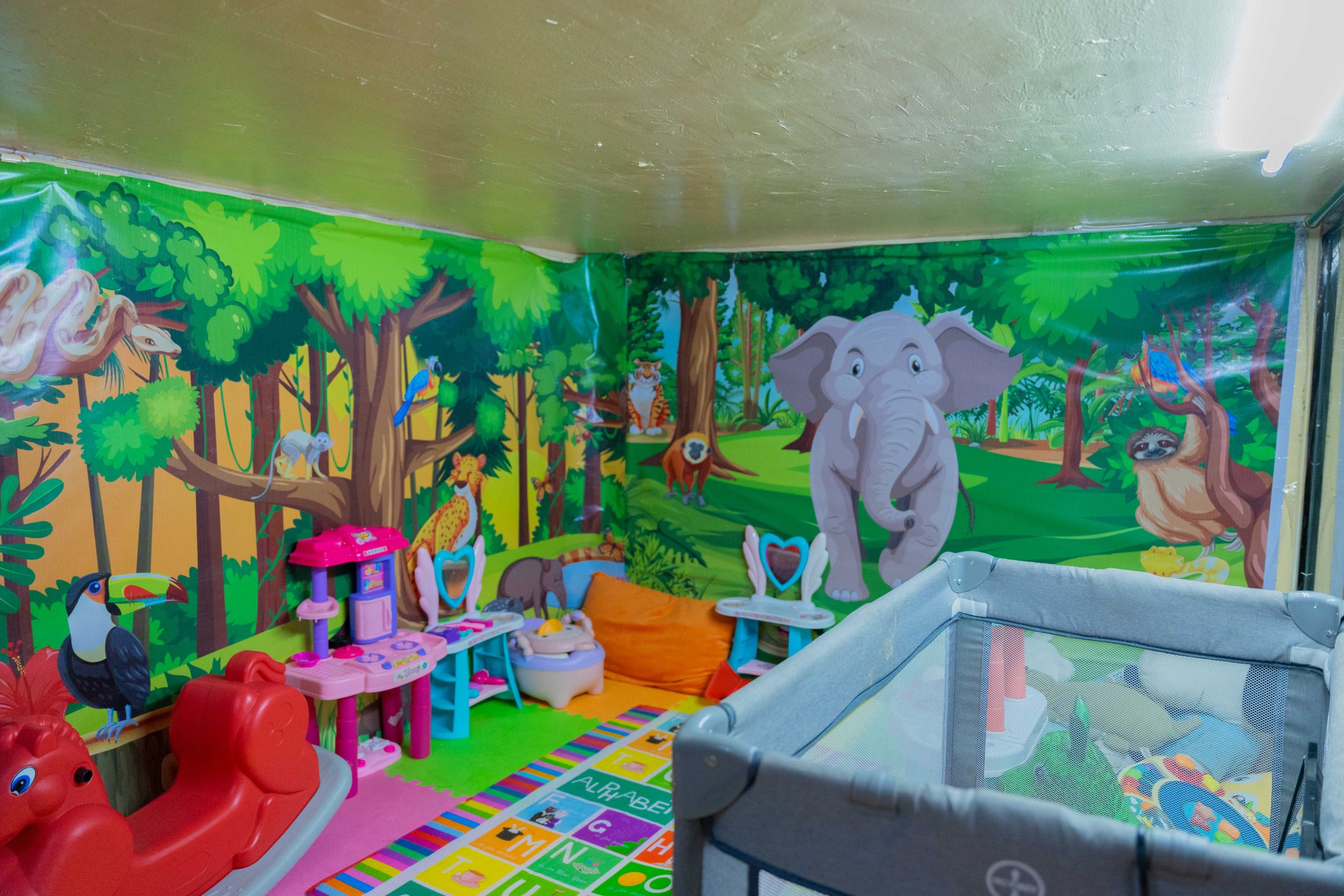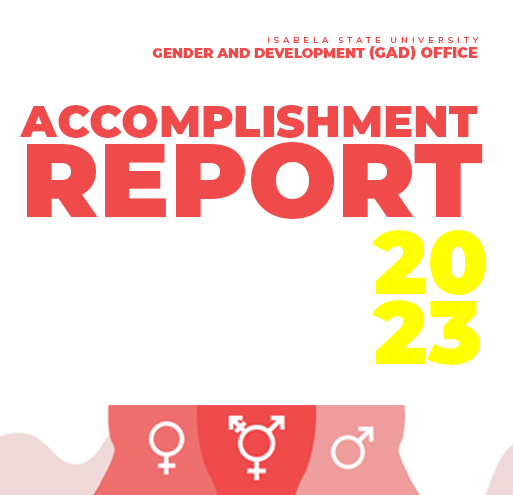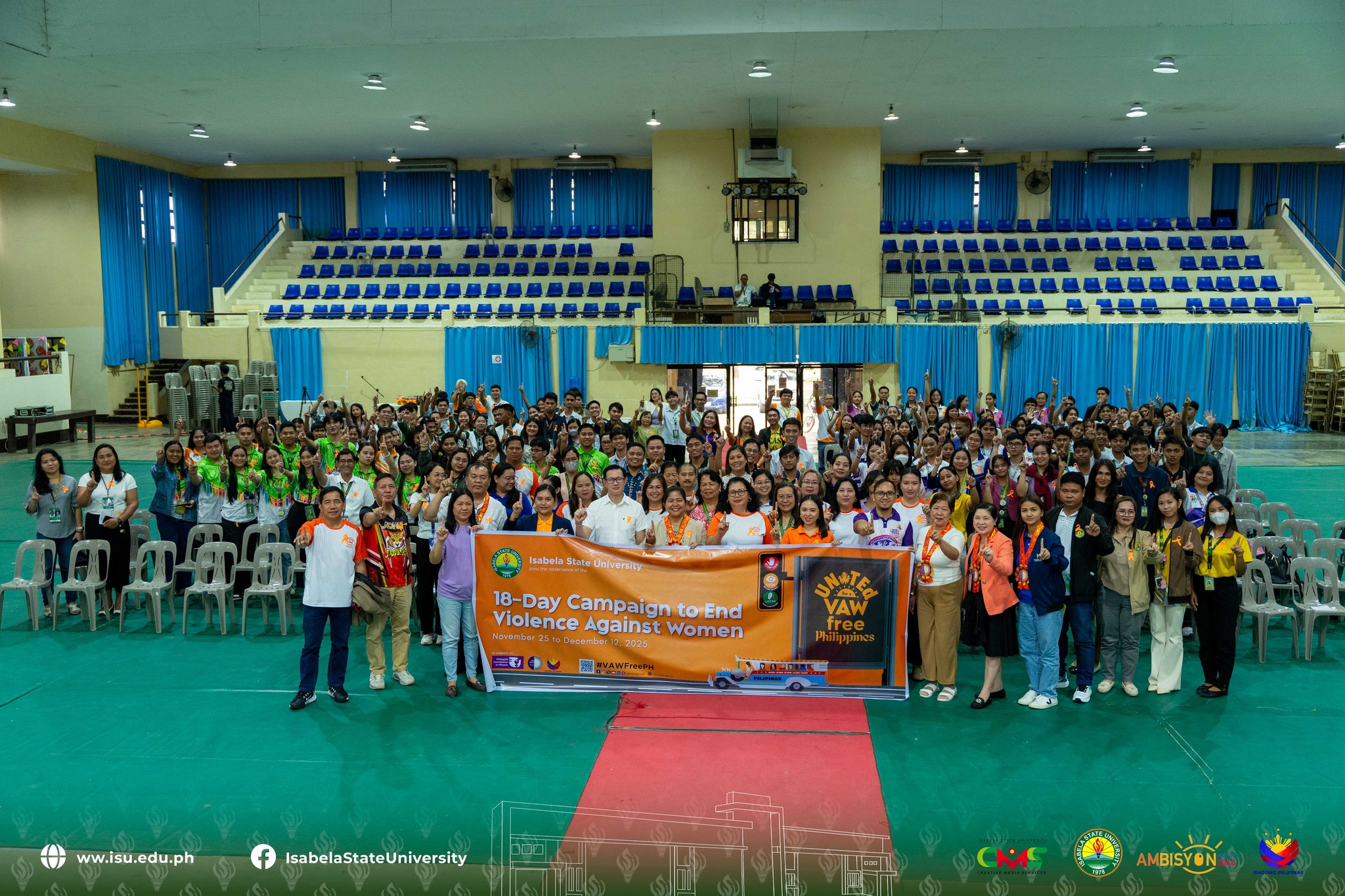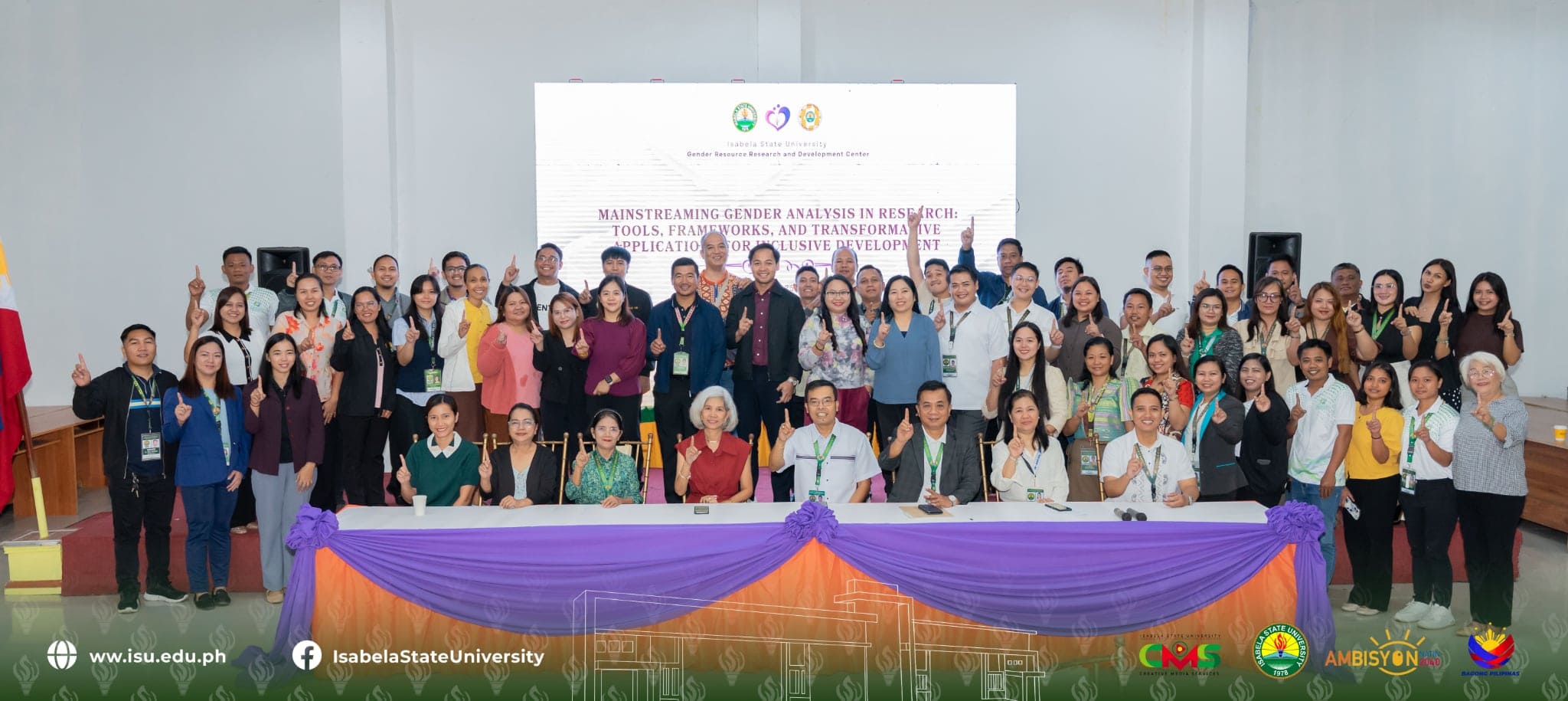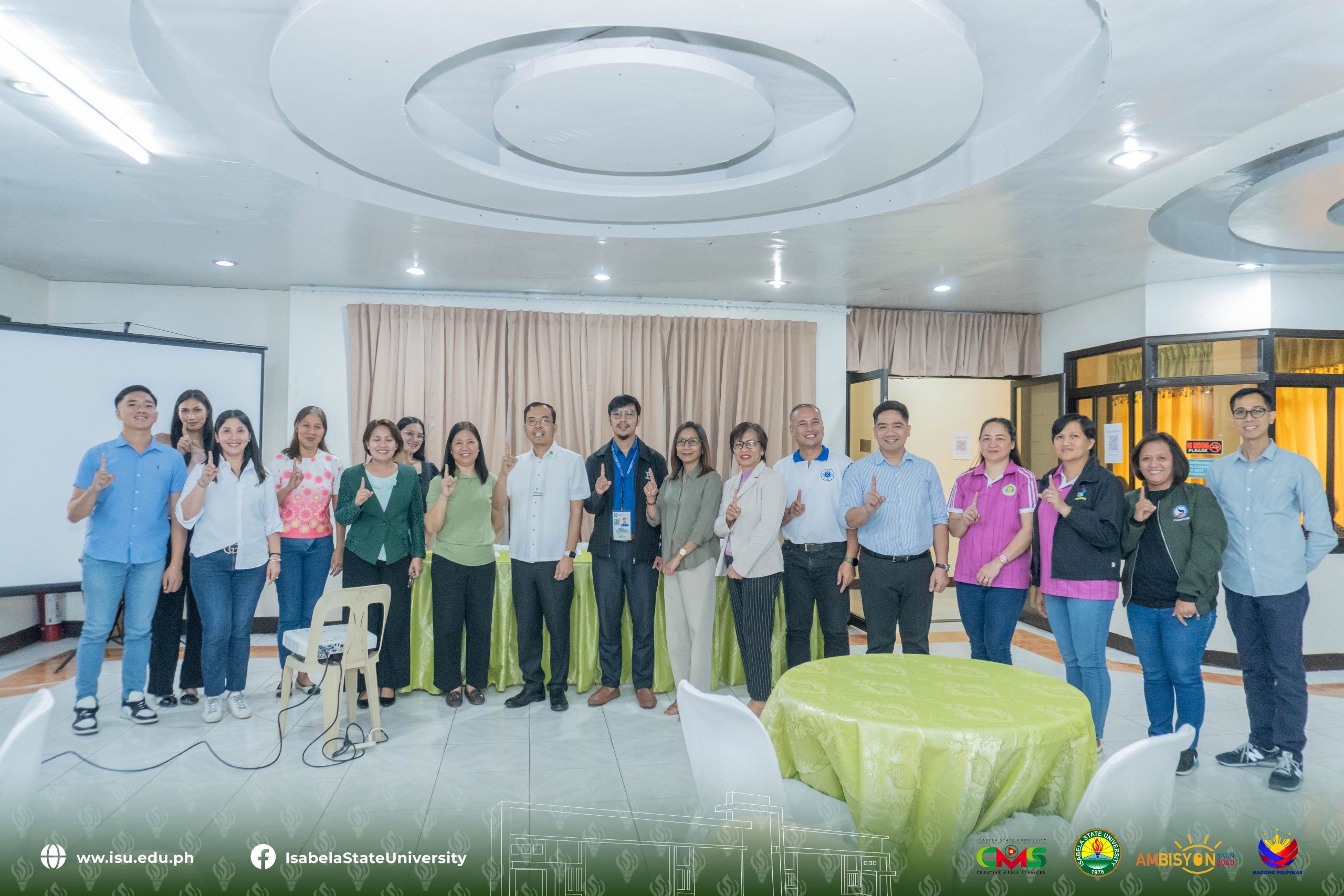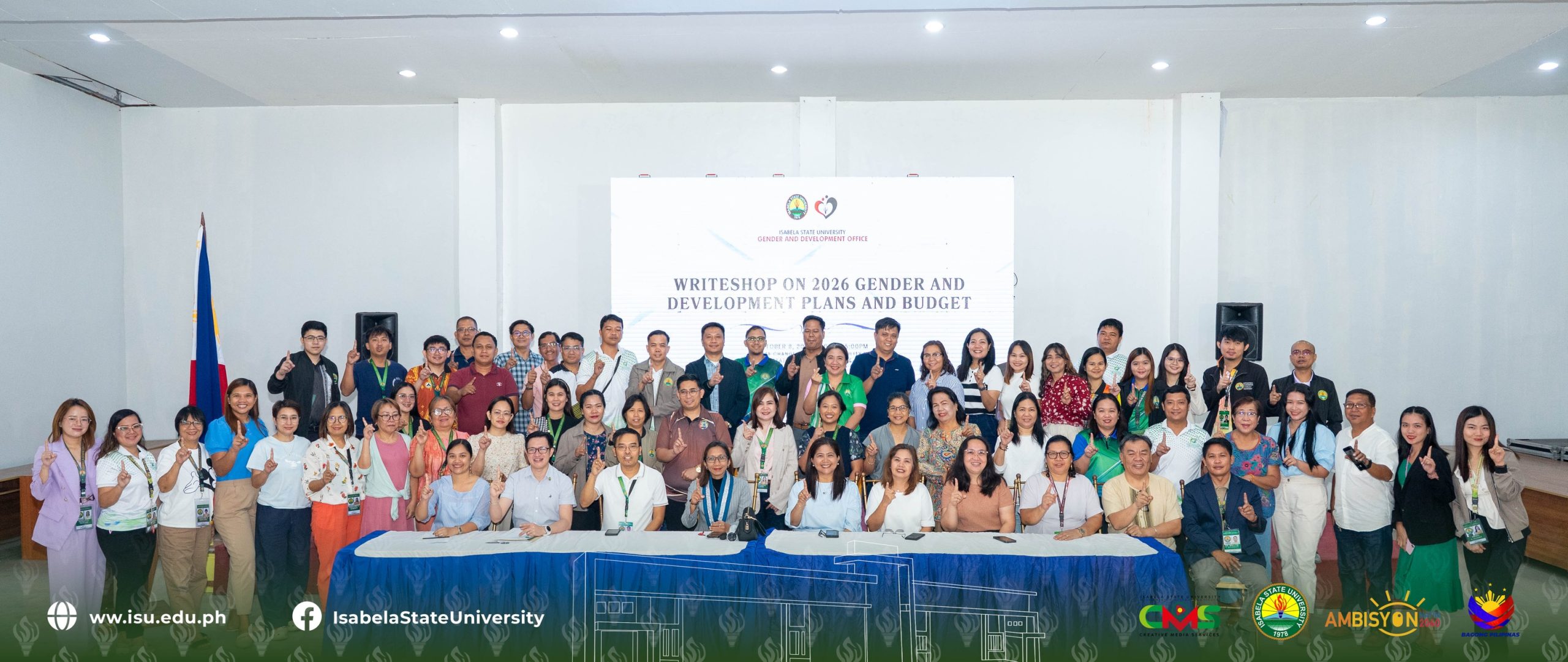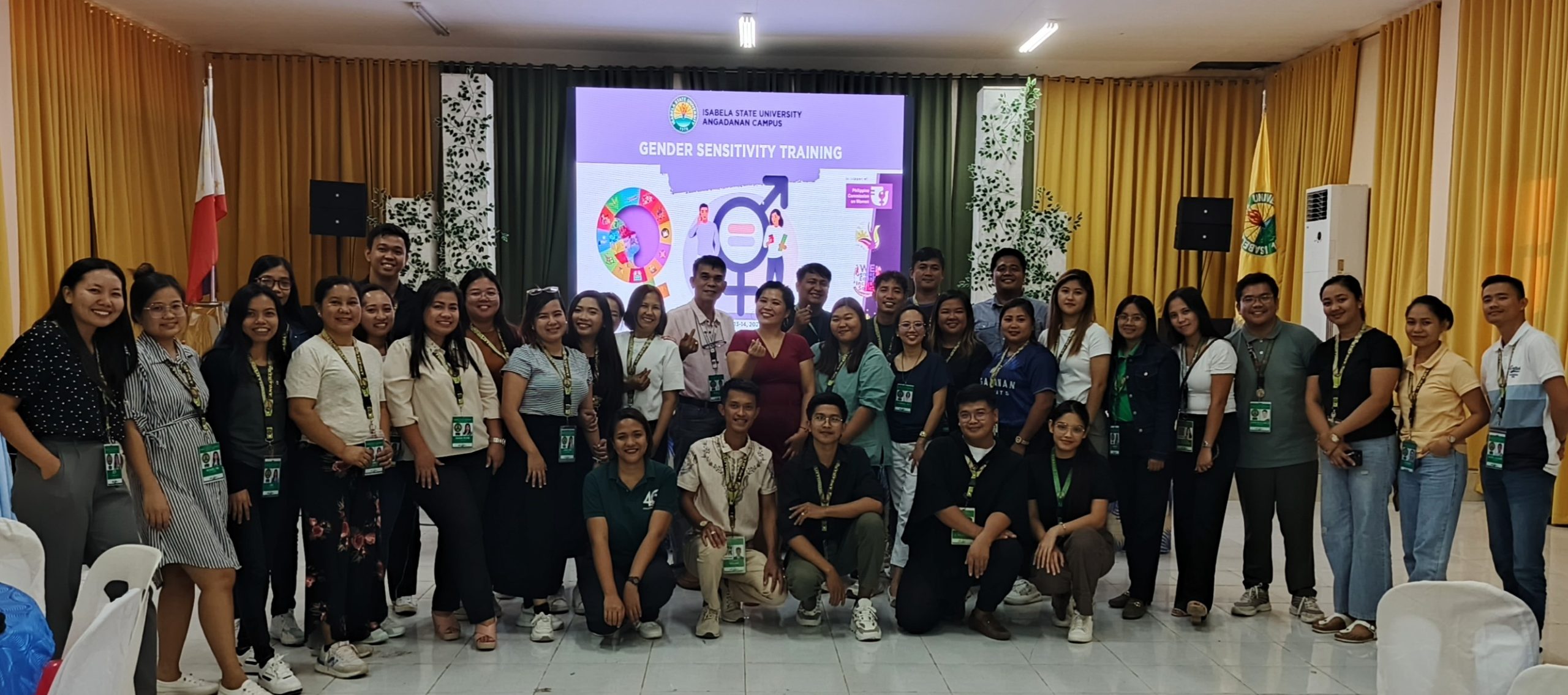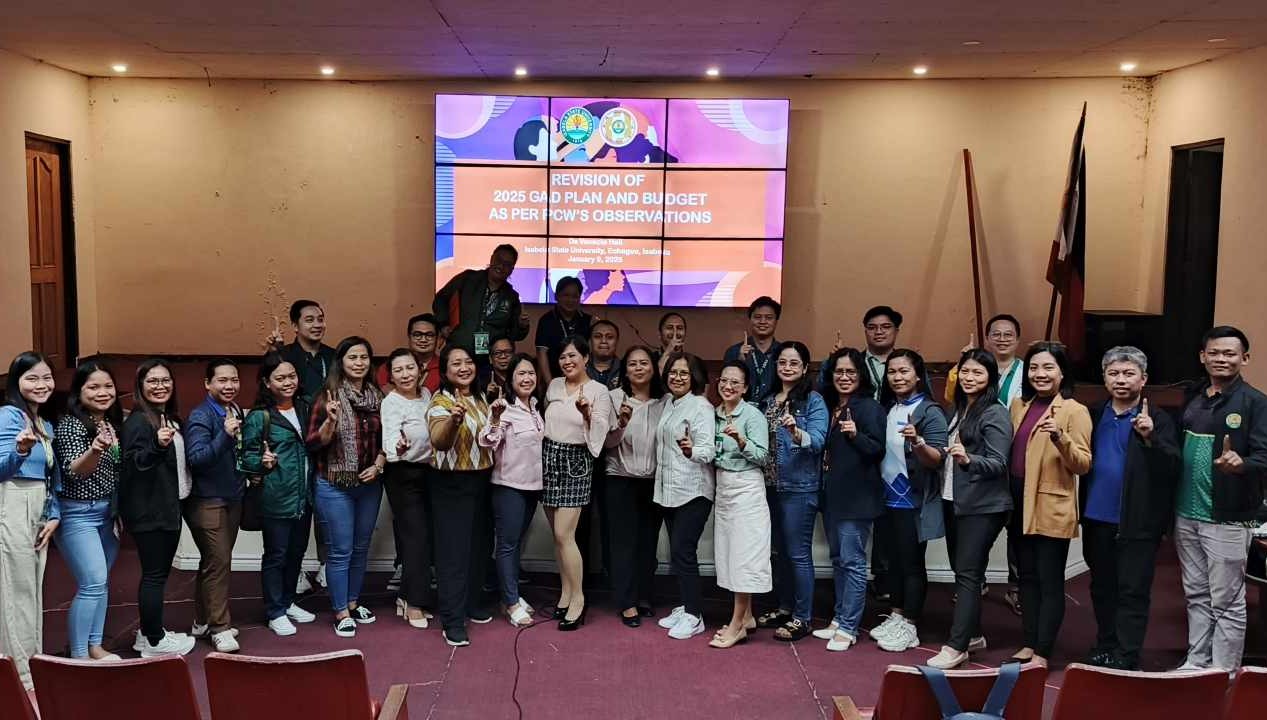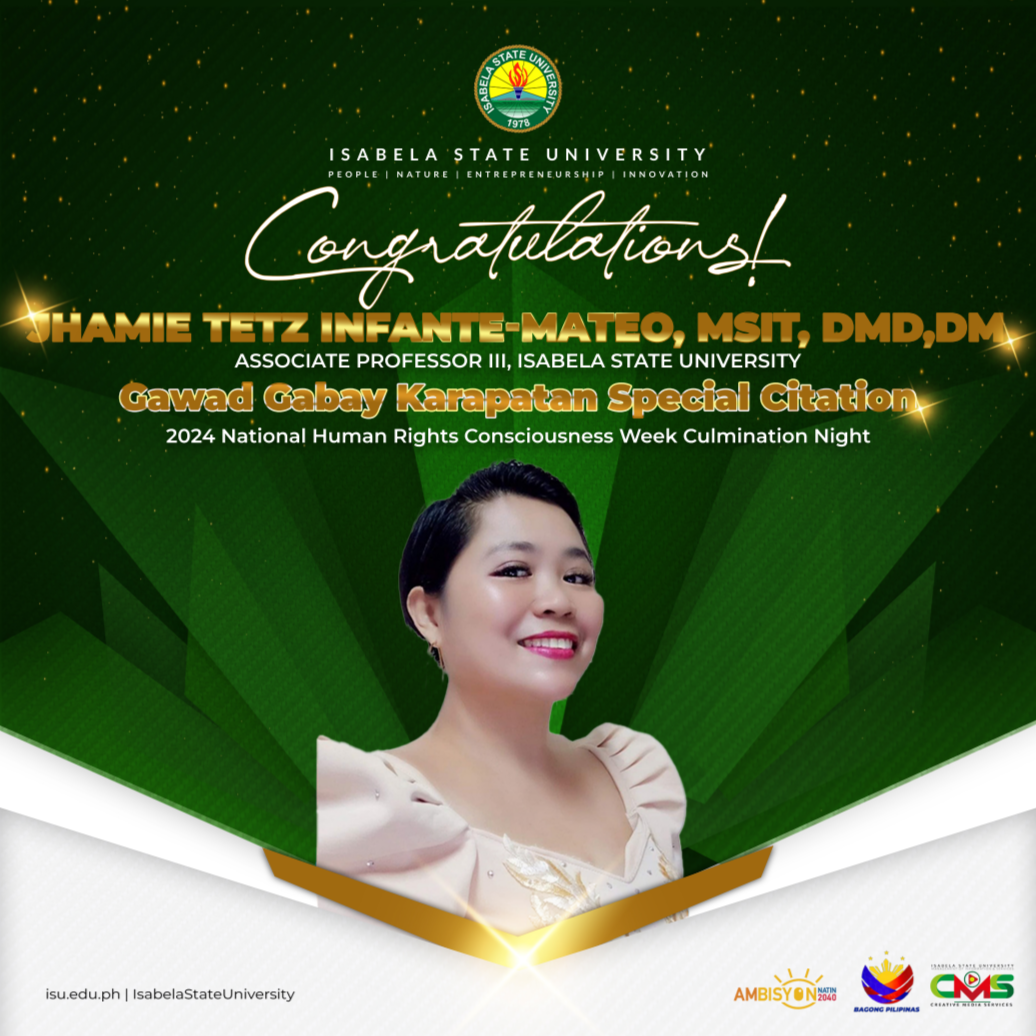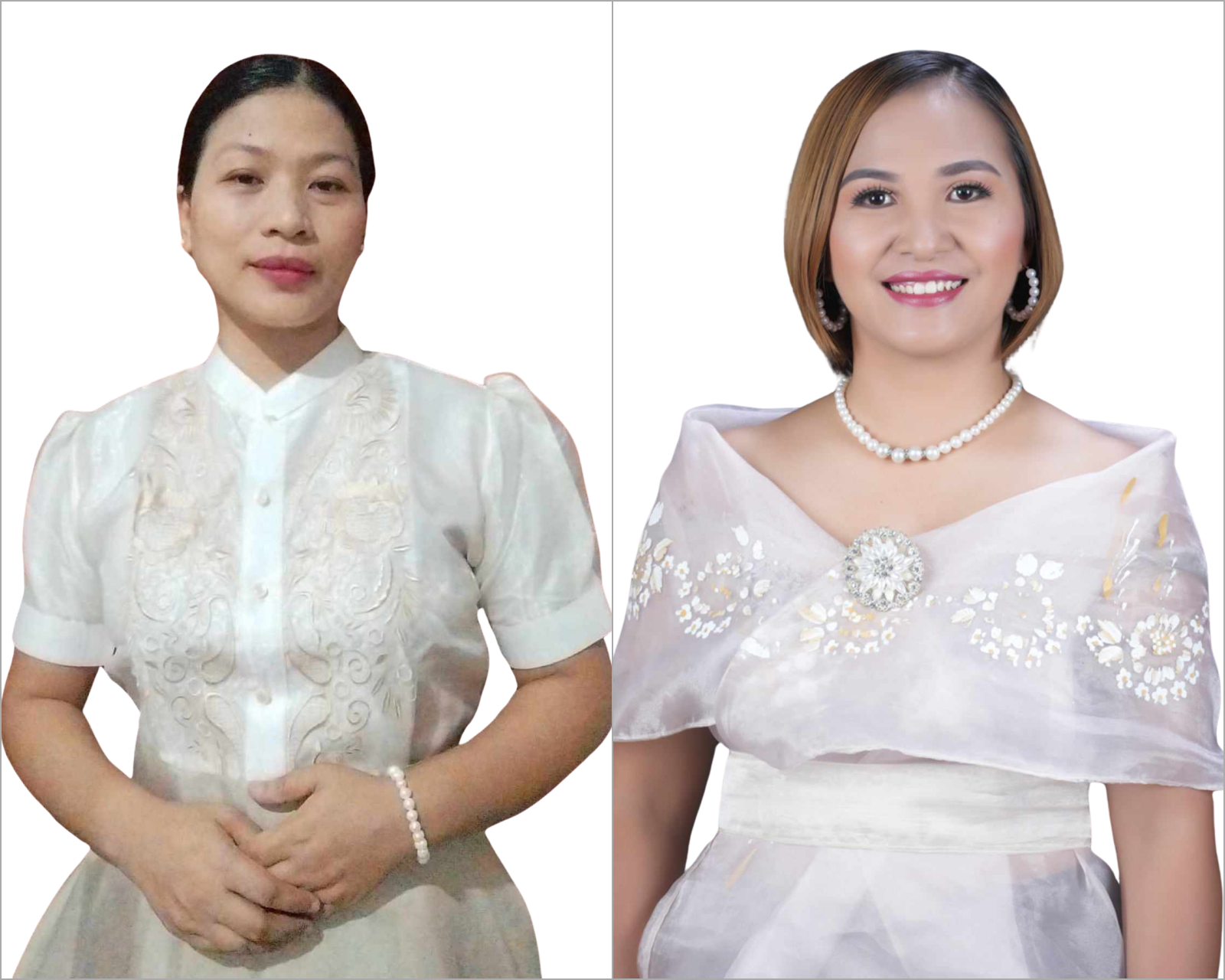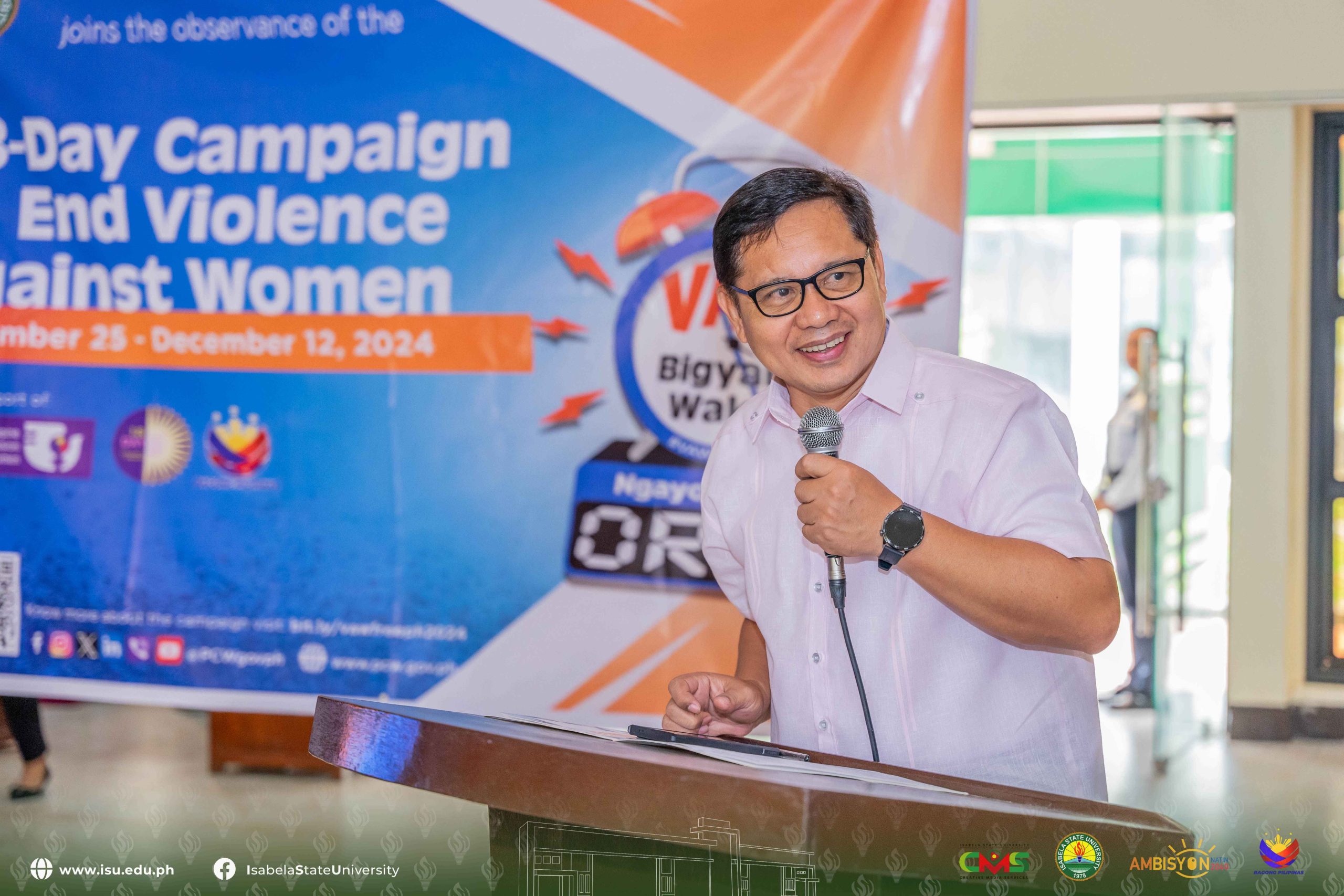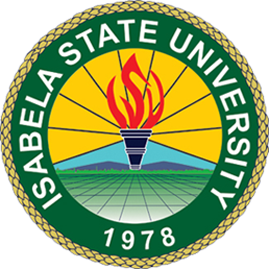
Welcome to the Gender and Development Office, a beacon of progress in the University’s quest to mainstream equality, diversity, equity, and inclusivity for all!
The GAD Office champions gender equality and social justice through comprehensive gender and diversity mainstreaming, advocacy, policy formulation, and capacity-building activities for faculty, staff, and students. It leads gender-responsive programming that explicitly prohibits discrimination based on gender identity, sexual orientation, disability, ethnicity, and other marginalized sector concerns.
Administered by the GAD Executive Committee chaired by the University President and composed of senior university officials, the GAD Office reflects ISU’s deep commitment to cultivating a safe, inclusive, and equitable academic environment. In recognition of evolving student needs, the university is also taking proactive steps to designate an additional diversity officer focused on supporting students with mental health conditions—ensuring their well-being, academic success, and graduation.
With a dedicated team, comprised of passionate and knowledgeable individuals, the GAD Office is at the forefront of this transformative journey.
- Improved gender mainstreaming in the ISU System with personnel equipped with gender lens;
- Increased gender responsive research and extension projects that help achieve women’s empowerment and increased visibility of the marginalized sectors;
- Enhanced curricular programs that promote gender equality through the use of gender – fair language and non-sexist image of women and men;
- Forged strong partnership with institutions and agencies that champions in mainstreaming gender locally and internationally; and,
- Established knowledge-base management system that provides gender parity which helps in achieving gender equality.
| NAME | DESIGNATION |
| Chair: | |
| Dr. Ricmar P. Aquino | University President |
| Vice-Chair: | |
| Dr. Boyet L. Batang | Vice President for Academic and Related Affairs |
| Dr. Orlando F. Balderama | Vice President for Research and Development, Extension and Training |
| Atty. Romano P. Cammayo | Vice President for Administration and Finance Services |
| Dr. Jay P. Chy | Acting Vice President for Planning, MIS, External and International Affairs, Public Relations and Business Affairs |
| All Campus Executives Officers/Administrators | |
| NAME | DESIGNATION |
| 1. MS. MARILYN Z. CUREG | University Finance Director |
| 2. MS. ROSEMARIE L. CASTILLO | Campus Budget Officer |
| 3. DR. MILA R. ANDRES | University Extension and Training Director |
| 4. ENGR. EDMUNDO A. OBIÑA | University Director for Student Services |
| 5. MS. TOMASA T. LANIA | Guidance Counselor |
| 6. MR. CONSTANTE G. MEDINA | University Planning Director |
| 7. DR. JAY P. CHY | Chief Administrative Officer |
| 8. MS. CAROLINE P. RUIZ | Campus HRMO |
| 9. MS. GLORIAM GAY B. SALVADOR | Administrative Officer |
| 10. Mr. JOVEN B. DIAZ, CPA | University Accountant |
| 11. DR. MARINEL P. DAYAWON | University Director for Instruction |
| 12. MR. GIL B. ZIPAGAN II | University Director for MIS |
| 13. DR. JOEFFREY LLOYD R. BARENG | University Director for Research and Development |
| NAME | DESIGNATION |
| 1. DR. JUDITH DARACAN | Angadanan |
| 2. DR. EVELYN CRISTOBAL | San Mariano |
| 3. DR. GENALYN CAPELO | Cauayan |
| 4. MR. FREDERICK DELA CRUZ | San Mateo |
| 5. PROF. HAYCEL VARGAS | Ilagan |
| 6. MR. MARC LOUIE BARNACHEA | Jones |
| 7. DR. VICTORINA METILLA | Roxas |
| 8. MS. LIA CONCEPCION | Cabagan |
You may virtually reach us through our official Email at: gad@isu.edu.ph
The presence of Technical Vocational Education and Training Competency Assessment Center (TVET CAC) serves as a platform to address the needs of female underrepresented who cannot afford to proceed to tertiary level of education as a result of measurement and tracking of applications and admission of underrepresented groups.
The Isabela State University TVET CAC is committed to provide excellence in TVET skills assessment and certification programs (short courses for skills development) in order to develop globally competent and skilled workers.
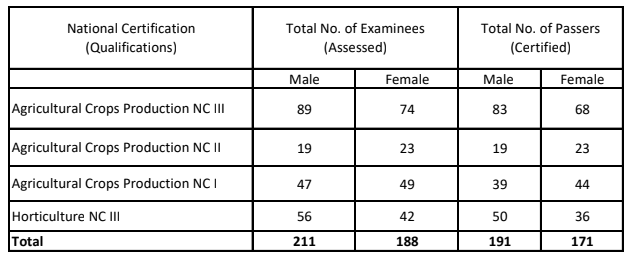
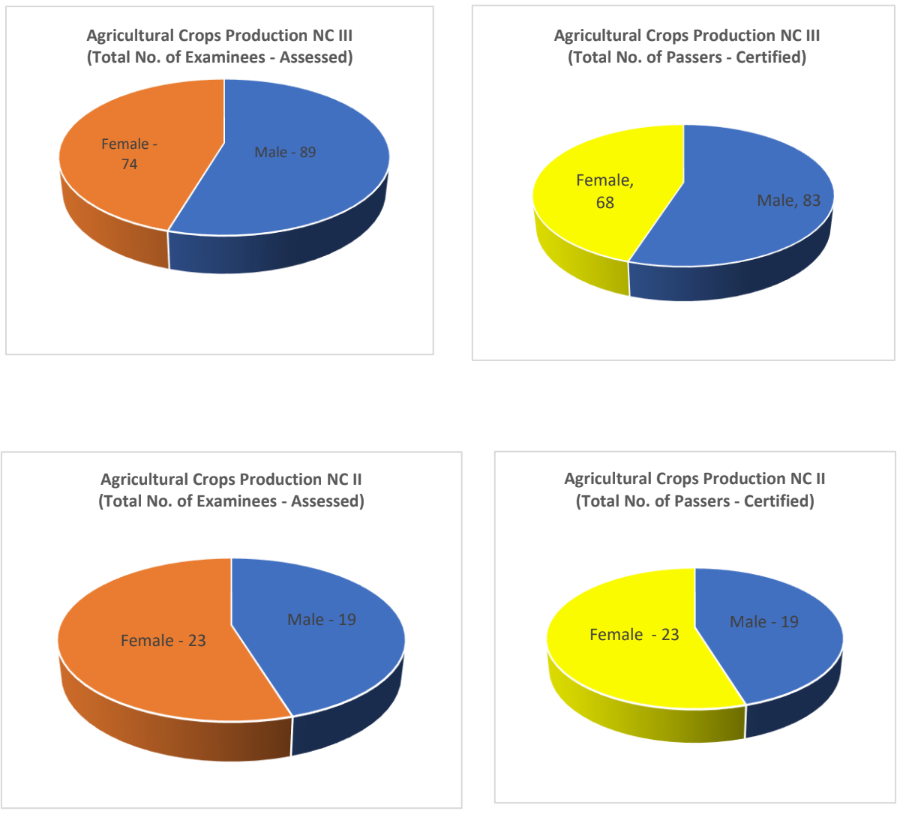
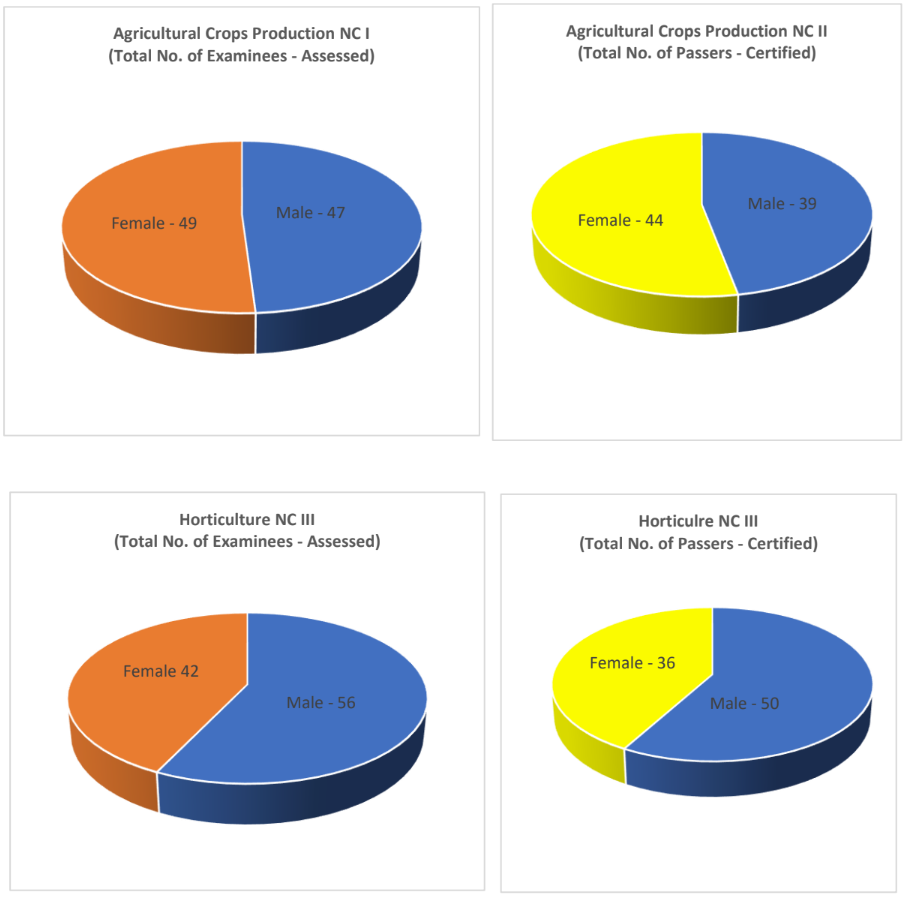
Areas of Concern
The ISU GAD Office is in sync with the RGAD-RLC/GRRDC/GAD’s areas of concern, which were directly base from the Beijing Declaration and Platform for Action- stipulating the international community’s commitments for advancing the rights of women and gender equality worldwide which include, (1) women and poverty; (2) education and training of women; (3) women and health; (4) violence against women; (5) women and armed conflict; (6) women and the economy; (7) women in power and decision making; (8) institutional mechanisms; (9) human rights of women; (10) women and media; (11) women and the environment; and (12) the girl child.
Rural Development Projects – agrarian reform, agriculture, and environment and natural resource management – form part of the country’s poverty reduction and rural development strategy. They comprise the distribution of resources (land titles, stewardship contracts, credits, agricultural inputs); introduction of new or improved production or post-production technologies and inputs; improvement of agricultural extension workers; including the capacity of agricultural marketing systems; and institutional development, such as the formation of agricultural producer’s or marketing groups. Projects also usually include the capacity development of relevant offices or units of the Philippine implementing agency in project development, design, planning, implementation, and monitoring and evaluation.
PARTNER AGENCY/IES:
- Department of Agriculture
- Department of Agrarian Reform
Natural resource management projects include social forestry, community-based, and coastal resource management projects.
PARTNER AGENCY/IES:
- Department of Environment and Natural Resources
Infrastructure projects involve the construction of facilities, including schools, hospitals, dams, irrigation structures, and transportation systems. Some result in the involuntary resettlement of communities or households. Regardless of the type of infrastructure projects, users, and resettled groups are erroneously viewed as an undifferentiated population, having the same needs, vulnerabilities, access, and opportunities to participate in deciding what facilities are needed where, how they will be maintained, how much they should cost each user, and the like.
PARTNER AGENCY/IES:
- Department of Public Works and Highway
Development projects with the private sector, including industrial undertakings, cover a broad range of programs or projects for both formal and informal sector producers, traders, and service providers. Development interventions that affect the private sector vary, ranging from new policies or rules, such as taxes, protection or deregulation, and incentives, to infrastructure support for industrial estates or export processing zones and financial assistance, capacity development, research and development, and marketing support (including export or trade missions). All these are bound to involved and affect women and men differently in their various roles as producers, workers, suppliers or owners of resources, investors, consumers, and decision makers; and in terms of gender relations in the workplace, the market, and decision-making processes.
PARTNER AGENCY/IES:
- Department of Trade and Industry
- Private Sector/Business Councils/Non-Government Organizations
Education projects or projects for the education sector encompass construction of facilities (infrastructure), technical assistance for a sectoral review or preparation of a sector plan, development or revision of curricula or educational materials, scholarships, and training of teachers and other education sector officials and personnel. The assistance may be for the entire sector, formal or informal education, or a particular level of formal education (elementary, secondary, or tertiary)
PARTNER AGENCY/IES:
- Commission on Higher Education
- Department of Education
- Technical Education Skills Development Authority
Like other social sector programs, health programs or projects may include construction of facilities (infrastructure), technical assistance for a sectoral review or preparation of a sector plan, provision of health and medical supplies and materials, and training and other capacity development activities for health officials and personnel. Health programs may be highly focused or specialized, as the case of anti-tuberculosis, anti-HIV, or reproductive health programs. However, some including primary health care, are more general and community based.
PARTNER AGENCY/IES:
- Department of Health
Many gender issues related to infrastructure projects also apply to housing projects. Women are rarely, if ever, considered as a major stakeholder and are therefore not consulted or invited to join users’ organizations. They also do not have access to employment in construction and other stages of the project, except to take on clerical and other desk-bound jobs. While gender role stereotyping continues in housing construction sites, a rise in the number of women in the management structure of the housing industry has been noted. More women are also emerging as leaders of community associations and homeowners’ associations.
PARTNER AGENCY/IES:
- Housing and Urban Development Coordination Council
Development interventions in areas under armed conflict are wide-ranging. These include the reconstruction of physical infrastructure, resettlement of evacuees, rehabilitation and recovery of traumatized civilians (particularly women and children), and peace negotiations.
Some of the relevant gender issues are:
- Insecurity and vulnerability of women and girls to sexual abuse during the conflict,
- Invisibility of local women in decision-making processes and peace negotiation panels.
- Psychosocial trauma of women and girls brought about by constant exposure to violence and death, and;
- Heavy burden of caring and providing for the children, especially in the case of displaced families and families of combatants.
These issues may be matched by interventions, strategies, or activities that will reduce gender gaps and empower women, such as involving women in the identification of peace and conflict issues, project design, and project planning and decision making. The project may also strengthen government’s commitment to the advancement of women as well as build on initiatives or actions of other organizations in the area.
PARTNER AGENCY/IES:
- Department of the Interior and Local Government
- Philippine Commission on Women
- Philippine National Police
- Local Government Units
- Department of National Defense
- Armed Forces of the Philippines
All projects, including justice-related projects, must be subjected to a gender analysis at two points: during project identification, and after the project design has been completed. In the pre-design phase, there is a need to identify the specific gender issues relevant to the proposed project as part of the situation analysis. Later, there is a need to assess the likely gender impacts of the project as designed.
The gender issues or the gender dimension of, say, an access to justice project, may pertain to gender-based biases or inequalities in the treatment of cases, complainants, and defendants; insensitivity to the gendered differences in the statuses and circumstances of women and men seeking or dispensing justice; or absence of processes, procedures, structures, or mechanisms that will address the issue of access of the poor and the marginalized (including various groups of women) to justice.
PARTNER AGENCY/IES:
- Department of Justice
Information and communication technologies (ICT) pertain to technologies that serve the information and communication needs of society. The ICT sector covers a broad spectrum that includes telecommunications, television and radio, computer hardware and software, computer services, and electronic media, such as the Internet, as well as the content of these media. Much has been said about “old” and “new” ICT, with the former referring to nonelectronic media (such as print) and analogue technologies (such as radio) and the latter pertaining to digital technologies that can transmit information all in one go by digits (such as computers, the Internet, electronic mail, and multimedia).
ICT Projects involve the construction of facilities (infrastructure) and systems; technical assistance for a sector review or the preparation of a sector plan, investment guidelines, and regulatory frameworks regarding content; development of ICT human resources; and capacity development of relevant government agencies and their partners to increase awareness, knowledge, and skills in various ICT applications, including electronic governance. The assistance may also be for the entire sector, government and private, or specific area of ICT operations applications, and oversight of the sector.
PARTNER AGENCY/IES:
- Department of Information and Communication Technologies
In the Medium-Term Philippine Plan Development, 2004-2010, the Philippine government stresses the importance of strengthening micro enterprises, which constitute almost 92 percent of businesses in the country. Microfinance in considered as one of the main strategies for strengthening the sector and for alleviating poverty.
PARTNER AGENCY/IES:
- Department of Trade and Industry
The ILO is devoted to reducing poverty, achieving fair globalization and advancing opportunities for women and men to obtain decent and productive work in conditions of freedom, equity, security ad human dignity. Decent work here means “productive work in which rights are protected, which generates and adequate income, with adequate social protection. It also means sufficient work, in the sense that all should have full access to income-earning opportunities.”
PARTNER AGENCY/IES:
- Department of Labor and Employment
Child labor is one of the four areas covered by the ILO Declaration on Fundamental Principles and Rights at Work. By signing the Declaration, the Philippines agreed to uphold a set of core labor standards, which, in addition to the effective abolition of child labor, includes recognition of freedom of association and the right to collective bargaining, elimination of all forms of forced or compulsory labor, and elimination of discrimination in respect of employment and occupation.
PARTNER AGENCY/IES:
- Department of Social Welfare and Development
The ILO Constitution include the protection of the interest of workers when employed in countries other than their own. The ILO international Migration Branch affirms this commitment by (1) protecting the rights if migrant workers and promoting their integration in their countries of destination and countries of origin; (2) forging an international consensus on how to manage migration; and (3) improving the knowledge bases on international migration.
There are a number of international standards on labor migration to which the Philippines is a signatory. Among these are the Convention concerning Migration for Employment (no. 97), the Convention concerning Migrations in Abusive Conditions and Promotion of Equality and Opportunity and Treatment of Migrant Workers (no.143), the Recommendation concerning Migration for Employment (no. 86), the Recommendation concerning Migrant Workers (no. 151), the Convention concerning Forced or Compulsory Labor (no.29) and the Convention concerning the Abolition of Forced Labor (no. 105). Other relevant ILO standards include conventions pertaining to Equal Remuneration (no. 100), Discrimination (Employment and Occupation) (no. 111), Minimum Age (no.138) and Worst Forms of Child Labor (no. 182)
PARTNER AGENCY/IES:
- Department of Labor and Employment
The tourism sector is composed of the public and non-public sector. The former includes national government agencies, mainly the Department of Tourism (DOT) and its various officers and agencies, and local government units, while the latter consists of the private sector (business enterprises in various areas of tourism), non-government organizations (NGOs), academic institutions, and, more importantly, communities.
PARTNER AGENCY/IES:
- Department of Tourism
The Department of Energy (DOE) is mandated by Republic Act (RA) No. 7638, or the Department if Energy Act of 1992, to “prepare, integrate, coordinate, supervise and control all plans, programs, project and activities of the Government relative to energy exploration, development, utilization, distribution and conservation”. In its Philippine Energy Plan, 2012-20230, the DOE commits itself to environment-friendly energy sources as evident in two of its policy thrust, namely: (1) development of energy resilience through the expansion of the use of renewable energy (wind, solar, geothermal, biogas, and biomass), alongside the exploration of petroleum and coal: and (2) promotion of low-carbon future through its energy efficiency campaign and promotion of the use of clean alternative fuels and technologies.
PARTNER AGENCY/IES:
- Department of Energy
In the last thirty years, the Philippines was battered by various disasters, including volcanic eruption (such as those of Mount Pinatubo, Mayon Volcano, and Taal Volcano) and typhoon (such as Ketsana and Haiyan) whose magnitude have affected countless lives, the frequency and intensity of hazards and disasters forced the government, civil society organizations, development partners and other groups to step up their disaster related efforts. These initiative found strong support in various international and regional agreements: the Hyogo Framework for Action (HFA); the Association of Southeast Asian Nation (ASEAN) Agreement on Disaster Management and Emergency Response (AADMER) that entered into force in 2009 and has been translated in the Philippines into a concrete Work Program for 2010-2015, with the Office of Civil Defense (OCD) as the national focal point; and more recently, the Sendai Framework for Disaster Risk Reduction for 2015-2030.
Building on the HFA, which focused on building the resilience of nations and communities to disasters and reducing vulnerabilities and risks to hazards, the Sendai Framework strongly emphasizes disaster risk management, instead of just management of disasters. The Sendai Framework targets “the substantial reduction of disaster risk and losses in lives, livelihoods and health and in the economic, physical, social, cultural and environmental assets of persons, businesses, communities and countries.” It aims at preventing new risk, reducing existing risk and strengthening resilience, and identifies seven global targets and establishes a set of guiding principles, including “primary responsibility of states to prevent and reduce disaster risk, all-of-society and all-of-state institutions engagement.
PARTNER AGENCY/IES:
- Office of Civil Defense
Gender and Development (GAD) is mainstreamed in the development plans to ensure development plans are not only aware of or sensitive to gender issues faced by women and men, girls and boys, but also address key, relevant gender-related issues or concerns. It covers two areas of development planning, macroeconomic and sector, and their associated results indicators and targets. The sector-related items and questions refer to both sector and key sub sectors, or to clusters of results areas.
In the Philippine Development Plan 2011-2016, for instance, the clustering of sectors in around the achievement of certain results that contribute to the achievement of the overall goal of inclusive growth.
PARTNER AGENCY/IES:
- National Economic Development Authority
This area of mainstreaming aims to ensure the programs and projects of the Bureau of Fisheries and Aquatic Resources (BFAR) are not only aware of or sensitive to gender issues faced by women and men, but also addressing key, relevant issues or concerns. The checklist cover livelihood and food security, fisheries and coastal resource management and conservation, research, and training. BFAR, as a government agency is mandated to ensure the development, management, and conservation of the country’s fisheries and aquatic resources, is tasked to strike a balance between fish production for food security and conservation for resource sustainability. Moreover, BFAR’s commitment to promoting social justice and aim of fostering fisherfolks empowerment engage the agency in protecting and upholding the rights of the disadvantaged, including women.
PARTNER AGENCY/IES:
- Bureau of Fisheries and Aquatic Resources
Food Security and Livelihood Agenda
Resource management and conservation project are crucial in ensuring the long-term sustainability of and benefits from coastal and fisheries habitats for present and future needs, especially of people whose subsistence primarily depends on these resources.
Proper management is aimed at ensuring continued productivity of the resources toward the attainment of food security and poverty alleviation. It usually involves resource assessment and valuation, super- and infrastructural interventions, climate-sensitive and survival enhancing marine and coastal ecosystem restoration enforcement and regulatory interventions, social engineering of coastal communities, monitoring control and surveillance, and institutional development and empowerment of key stakeholder in the fisheries sector.
PARTNER AGENCY/IES:
- Bureau of Fisheries and Aquatic Resources
The fisheries sector contributes to overall world and national food security, although it has been difficult to distinguish the contribution of capture and aquaculture fishing. One measure for determining its share in attaining food security is the capacity to be self-sufficient at the national and community levels, and how this translates to equal access to food at the household level. While it has been observed that the country’s fish production capacity currently satisfies the demand of a growing population, this is noticeably in the context of declining per capital consumption of fish.
It is important to equal priority to improving food production and expanding opportunities for livelihoods and employments in the coastal areas, as this will increase the capacity of fisher to access and afford other foods. At the macro level, the fisheries sector has exhibited good performance, most especially in exports, but this needs a second look in terms of how the industry has helped improve the conditions in coastal communities.
PROGRAMS AND SERVICES
The RGAD-RLC/GRRDC/GAD’s program and services are divided into three components namely, GAD Technical Assistance Platform, GAD Tools Learning Materials, and Knowledge Products Development and Partnership Building.
GAD Technical Assistance Platform
This service is focused on the delivery of technical assistance to requesting NGAs and LGUs for capacity development interventions on GAD; setting up of mechanisms for the regular updating and sharing of information and resources as well as referral mechanism for suitable resource persons, trainers and other technical assistance providers on GAD from the University. Basic and essential trainings needed by the government agencies, particularly their GFPS members to mainstream gender perspective in their systems and processes include, Gender Sensitivity Training, Basic GAD Orientation, Gender Analysis, (GA) and Use of GA Tools and GAD Planning and Budgeting.
GAD Tools, Learning Materials and Knowledge Products Development
This Program is focused on the development of sex and gender dis-aggregated database that leads to the production of gender statistics; development of knowledge products such as M&E Instrument, Training Guides and knowledge management system built upon gender – related researches; development of tools, modules and manuals to increase the learning materials related to GAD for publication.
Partnership Building
This program is focused on building partnership with government and private institutions that excels in mainstreaming gender both national and international collaborations. This includes the funding agencies such as the Asian Development Bank, UN Women Fund for Gender Equality through partnership with ASEAN Universities such as UUM and RSU to name a few.
ISU-GAD TRAININGS/SEMINAR AND WORKSHOP
The Center conducted Gender Sensitivity Training not only in ISU campuses but also to other partner agencies of Isabela State University. The Gender Sensitivity Training is conducted to assess where the organization stand with regards to gender sensitivity and responsiveness and a great way to address gender-related issues. GST help inform and guide employees on appropriate ways of addressing and interacting with colleagues, client and partners. It helps employees understand their lack of understanding in regards to gender-related matters.
The aims and objectives of conducting Gender Sensitivity Trainings were: a) to distinguish and realize the difference between sex and gender and how it relates to gender roles and identities; b) to explain to participants how they were raised affect their perceptions on men and women; c) to make the participants realize that gender biases result to gender discrimination and violence against women; d) to inform the participants of the different vehicles in transmitting gender biases; and e) to explain why the social institutions are responsible in maintaining a reinforcing gender bias found in our culture, norms, and beliefs.
With the number of gender sensitivity trainings conducted to different agencies, it was found out that almost all of the LGUs, SUCs and other line agencies who were given GST still need more trainings and workshops to fully understand the importance of Gender and Development in the organization.
The center conducting Gender Analysis and Gender Analysis tools workshop and training to gather and provide the necessary data and information to integrate a gender perspective into policies, programs, and projects. As a starting point of gender mainstreaming, gender analysis identifies the differences between and among women and men in terms of their relative position in society and the distribution of resources, opportunities, constraints, and power in given context. In this way, conducting a gender analysis allows for the development of interventions that address gender inequalities and meet the different needs of women and men.
Gender Analysis Tools include 24-hour Activity; Harmonized Gender and Development Guidelines (HGDG) and Gender Mainstreaming Evaluation Framework (GMEF). It provides information on the different roles of women and men at different levels in policies, programs, and projects; their respective access to and control over resources, and the material and non-material benefits of society; and their gender-specific needs, priorities and responsibilities.
The purpose of gender analysis and gender analysis tools is to identify and address gender inequalities, by:
- Acknowledging differences between and among women and men, based on the unequal distribution of resources, opportunities, constraints, and power;
- Ensuring that the different needs of women and men are clearly identified and addressed at all stages of the policy cycle;
- Recognizing that policies, programs, and projects can have different effect on women and men;
- Seeking and articulating the viewpoints of women and men and making their contribution a critical part of developing policies, programs, and projects;
- Promoting women’s participation and engagement in community, political and economic life; and
- Promoting better informed, gender-responsive and effective interventions.
Conducting gender analysis workshop and training can acknowledge the historical and social inequalities faced by women and aims to inform the design of policies, programs, and projects to address there inequalities. This includes consideration of women’s particular experiences, roles and responsibilities, and their level of access to resources and decision-making.
With the number of gender sensitivity trainings conducted to different agencies, it was found out that almost all of the LGUs, SUCs and other line agencies who were given GST still need more trainings and workshops to fully understand the importance of Gender and Development in the organization.
Providing equal access to persons with disabilities
At ISU, we understand the importance of providing equal opportunities for all, and that begins with ensuring that every member of our community has easy access to our facilities. Our school ramps for persons with disabilities are designed to empower our students and staff with mobility challenges, creating a more inclusive and diverse educational environment.
Our Commitment to Accessibility
At Isabela State University, we are dedicated to fostering an inclusive environment that welcomes and supports all individuals, regardless of their physical abilities. Our commitment to accessibility is not just a philosophy but a core value that is woven into every aspect of our institution.
Accessible School Ramps Matter
Accessible school ramps are an integral part of our mission to create a barrier-free campus. These ramps offer several benefits:
- Equal Access: Ramps ensure that students, faculty, and visitors with mobility challenges can access classrooms, administrative buildings, libraries, recreational areas, and all facilities with ease.
- Inclusivity: An accessible campus fosters inclusivity and diversity, enriching the educational experience for everyone.
We provide the best support for our community members with disabilities. If you have any questions, concerns, or require assistance, please reach out to our Gender and Development Office. We are here to help!
Isabela State University is committed to creating an accessible and inclusive environment for everyone. Our accessible school ramps are just one aspect of this commitment, ensuring that everyone can enjoy the full range of opportunities our university has to offer. Join us in celebrating diversity and inclusivity at ISU, where accessibility is not just a goal but a reality.
FACILITIES
CHILD MINDING AND LACTATION AREA
Isabela State University has introduced a Child Minding and Lactation Area, offering accessible childcare for student mothers and university employees in need of support. This dedicated space is designed to ensure the safety, well-being, and growth of every child in a secure and nurturing environment.
Equipped with age-appropriate resources and engaging activities, the facility encourages children to explore, learn, and develop. It provides peace of mind for parents and guardians, allowing them to focus on their academic and professional responsibilities, knowing their children are in capable hands. By making childcare more accessible, we aim to create a more inclusive and family-friendly campus, empowering parents to pursue their goals without compromising their caregiving duties.
For the convenience of nursing mothers and parents, the Child Minding and Lactation Area is located at the ground floor of the Administrative Building at ISU Echague (Main) Campus.
Downloadable:
Recognizing the importance of understanding Gender and Development (GAD) concepts, ISU implemented several measures to enhance appreciation and knowledge among students and external stakeholders. These efforts included the establishment of the 2023 Campus GAD Focal Point System, organizing events such as the National Women’s Month Celebration and the 18-day Campaign to End Violence Against Women and Children (VAWC), and conducting training sessions to equip participants with necessary knowledge and skills. These initiatives were complemented by pre-test and post-test assessments to measure learning outcomes.
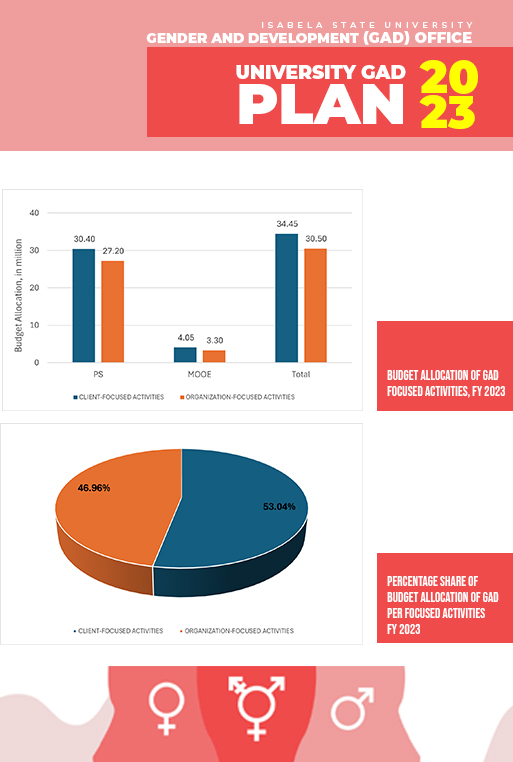
ANNUAL GENDER AND DEVELOPMENT (GAD) PLAN F.Y. 2023
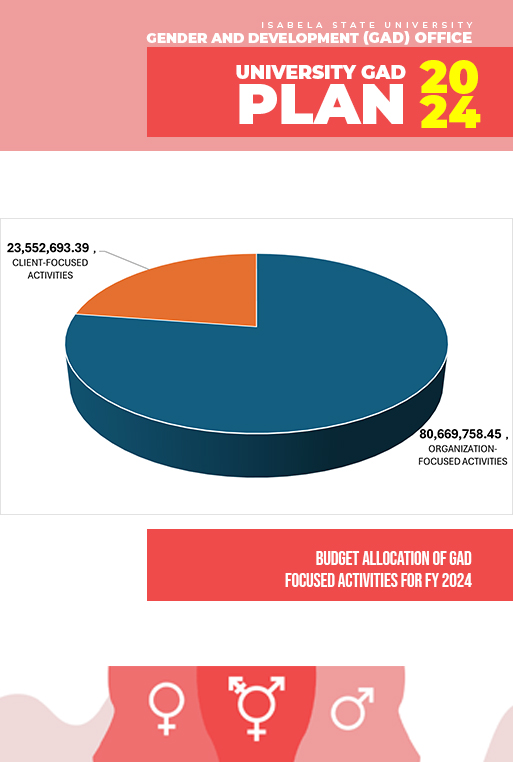
ANNUAL GENDER AND DEVELOPMENT (GAD) PLAN F.Y. 2024
NEWS & updates
ISU joins 18-day campaign to end VAW
RGAD RLC, ISU GAD Office conduct training on mainstreaming gender analysis in research
ISU hosts RGADC midterm review, 2026 work planning
ISU conducts writeshop for 2026 GAD GPB
ISU Angadanan conducts Gender Sensitivity Training for faculty, non-teaching personnel
ISU conducts revision of 2025 GAD GBP
ISU faculty receives special citation from CHR
2 ISU GAD focal persons now part of NGRP
ISU joins 2024 18-day campaign to end VAW
- 1
- 2

